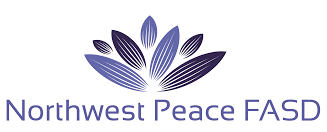
Part time Clinic Administrative Support – Contract Position offered
The Northwest FASD (Fetal Alcohol Spectrum Disorder) PEACE Society is
seeking an Administrative Support member to assist our team. This role involves
providing administrative support for referral, assessment, and waitlist
processes. The contractor filling this role should be experienced in managing special projects and licensed as a business operator.
- The compensation for this position amounts to $30 per hour.
Key Duties include:
- Edit reports, perform data entry, and prepare documents.
- Report to project area supervisor.
- Handle confidential and time-sensitive material.
- Collaborate with team members as required.
- Schedule and coordinate meetings and appointments.
- Maintain accurate records.
- Conduct administrative tasks (filing, typing, copying, scanning).
- Optimize office organization and support colleagues.
- Ensure timely communication distribution.
- Contact clients for assessments and appointments.
- Research and gather critical information.
- Prepare agendas and event invitations.
- Set up office environment for professional events.
Key Competencies Include:
- Communication Skills: Effectively communicates verbally and in writing with colleagues, clients, and external contacts.
- Teamwork: Collaborates willingly with colleagues to contribute positively to team dynamics.
- Organizational Skills: Manages tasks efficiently, prioritizes workload, and maintains order in a busy office environment.
- Software Proficiency: Demonstrates proficiency in software programs like Outlook and Excel.
- What we offer:
We offer a productive, flexible, and cohesive teamwork environment. This opportunity will remain open until a suitable applicant is found. We thank all candidates for their interest but only those selected for an interview will be contacted.
Please email your resume and cover letter to gwen@nwfasd.ca

















